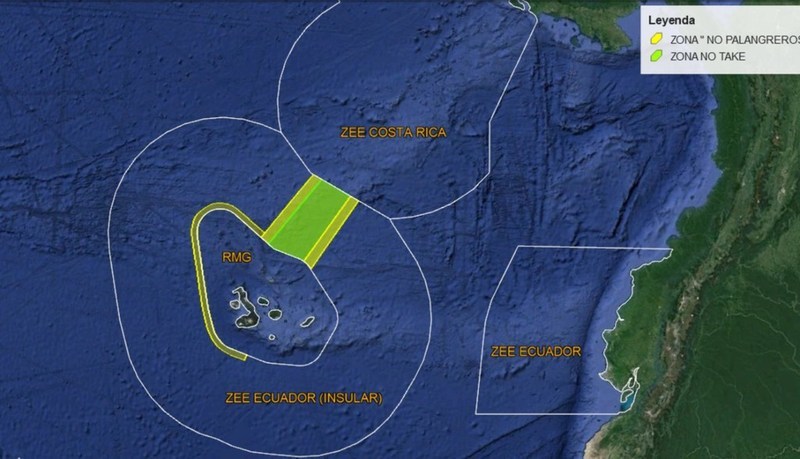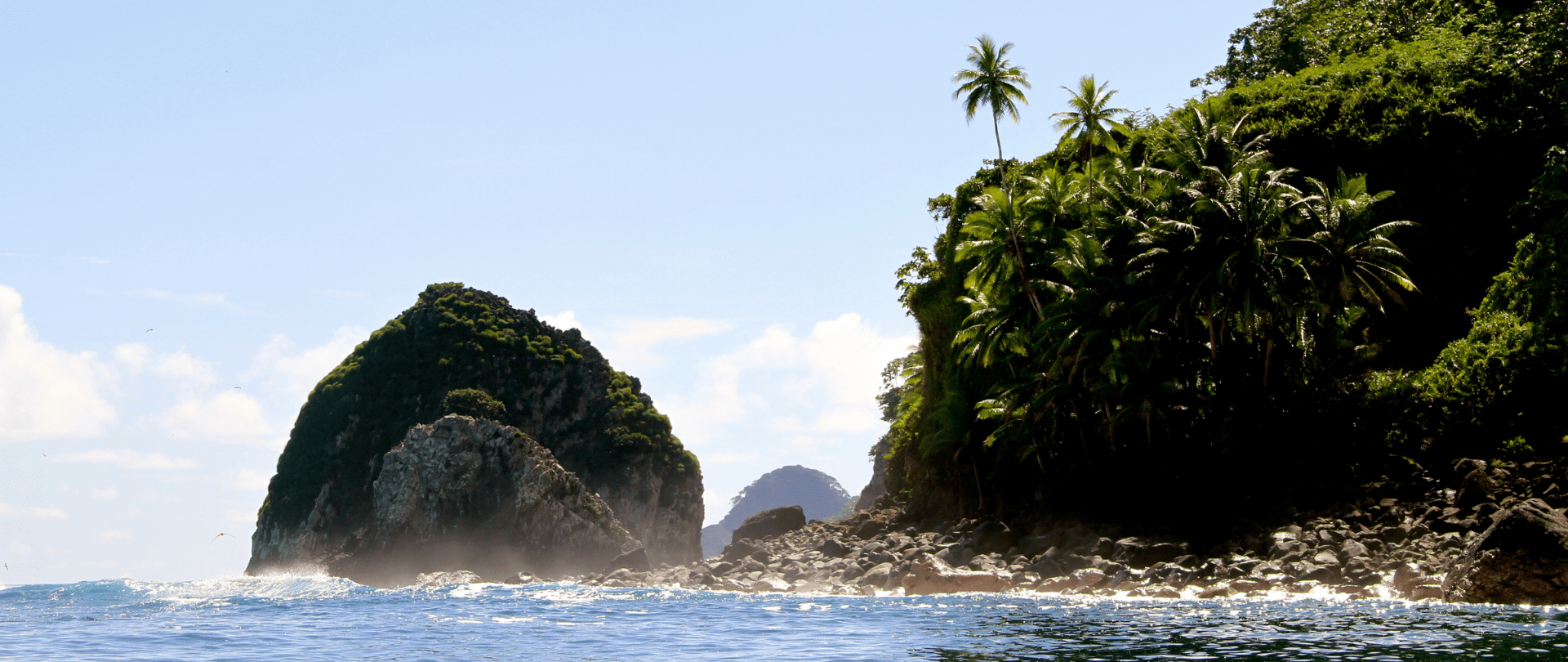The Ebiil Society: Champions of Palau
Ann Singeo, founder of our partner organization the Ebiil Society, shares her vision for a thriving Palau and a flourishing world of indigenous science!
Our new online shop is live!
Published on
November 1, 2021
Written by
Monica Calvopina
Photo credit
Monica Calvopina

Today in Glasgow, during the COP26 climate change summit, Ecuadorian President Guillermo Lasso, announced the declaration of a new Marine Reserve in the Galapagos.
The new reserve announced at a press conference, will complement the current Marine Reserve with an additional 60,000 km2, which are divided into two zones of 30,000 km2 each. A zone of no fishing production (no-take zone), which connects the waters of Ecuador with those of Costa Rica, the second is a no longline fishing zone located northwest of the current Galapagos protected area, which will help prevent longlines from entering the current Reserve.
This is a critical step towards the protection of the Galapagos – Cocos biodiversity corridor, allowing safe passage to iconic species such as hammerhead sharks, whales, sea turtles, manta rays, and more. Protecting these species is the responsibility of each country and all of us combined. This could be the beginning of a marine protected area formed by four countries, Ecuador, Costa Rica, Panama, and Colombia in a multilateral effort, especially in the middle of a climate and extinction crisis.
Maximiliano Bello, Island Conservation’s Partnership Manager.

This new area will undoubtedly contribute to the conservation of highly threatened marine species in the Galapagos-Cocos Island migration corridor, as well as ensuring the sustainability of fishing resources for both the industrial and artisanal fisheries of Ecuador.
The Galapagos Marine Reserve expansion is a big step for the protection of the biodiversity of this marine corridor. This region hosts a variety of ecosystems that play an important role in the carbon sequestration process, food security for human communities, and essential habitat for marine biodiversity, including some of the most charismatic and endangered species, such as whale sharks.
Paula A. Castaño, Island Conservation’s Native Species Specialist, Latin America
This initiative materializes after years of work from the Galapagos community and the support of different organizations, authorities, and NGOs.
Island Conservation is pleased to be part of the Más Galapagos collective, a group consisting of organizations, communities, and researchers. We thank the Pew Charitable Trust with its Pew Bertarelli Ocean Legacy initiative and the Blue Action Fund for their support in this project and the achievement of this first step towards reaching sustainability and the restoration of our oceans.
We congratulate the government of Ecuador and its authorities for increasing marine protection zones for the common benefit.
Check out other journal entries we think you might be interested in.

Ann Singeo, founder of our partner organization the Ebiil Society, shares her vision for a thriving Palau and a flourishing world of indigenous science!

This historic agreement aims to protect the marine and coastal areas of the Southeast Pacific.

Our projects to restore key islets in Nukufetau Atoll forecast climate resilience and community benefits in Tuvalu!

Island Conservation attended the 16th meeting of the Conference of the Parties to the Convention on Biological Diversity!

Island Conservation and partners have published a new paper quantifying ecosystem resilience on restored islands!

Climate Week NYC: what is it and why is it important? Read on to find out why Island Conservation is attending this amazing event!

With sea levels on the rise, how are the coastlines of islands transforming? Read on to find out how dynamic islands really are!

Part 2 of filmmaker Cece King's reflection on her time on Juan Fernandez Island in Chile, learning about conservation and community!

Everything you need to know about nature-based carbon capture and how it helps islands build climate resilience!

Learn how bird poop is the key to healthy island wildlife, coral reefs, and communities!